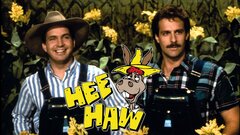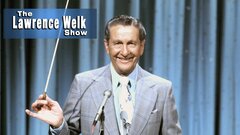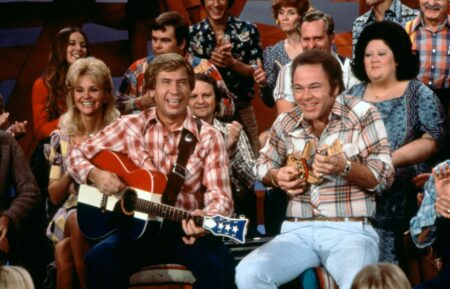Country singer Charley Pride enjoyed a stellar career as a recording artist, earning over 30 No. 1 hits and a dozen gold albums between 1966 and 1989, which placed him second only to Elvis Presley as the top-selling artist for RCA Records and among the top 10 singers with the most No 1 singles on the Billboard country chart. Those accomplishments would have been enough to enshrine Pride among the highest echelon of country music performers, but he was further distinguished as one of the few African-American musicians to enjoy any sort of success in that genre.
Pride addressed issues of race by letting his songs and rich, smooth delivery speak for itself. In doing so, he achieved one of the most storied careers in late 20th century country music; he remained the last black artist to reach the top of the country charts until 2008, when ex-Hootie and the Blowfish frontman Darius Rucker claimed the No. 1 spot with "Don't Think I Don't Think About It." Though Pride's career wound down in the 1990s, his incredible string of hit singles and records enshrined him in both the country world and history books as a groundbreaking and rarely surpassed talent.
He was born Charl Frank Pride in Sledge, MS on March 18, 1938. The unusual spelling of his first name was the intentional choice of his sharecropper father, but due to a clerical error, his legal name became Charley Frank Pride. His father also dissuaded him from the blues, believing it to be a morally bereft form of musical expression, and instead encouraged his son towards the sounds of the Grand Ole Opry, the cathedral, as it were, of white-dominated country music. The sounds of Ernest Tubb and Hank Williams, Sr. had a profound effect on Pride, who worked hard on his family's cotton farm to buy his first acoustic guitar.
Music, however, was not his only passion; Pride had long dreamed of playing professional baseball, and left home at the age of 16 to try his hand pitching for the major leagues. He landed his first job pitching for the Memphis Red Sox, a Negro American League team, in 1952, shortly before signing the following year with the Boise Yankees, a short-lived farm team for the New York Yankees. Pride then bounced through a variety of Negro league teams before serving two years in the Army. Upon his return, he tried out for the California Angels and New York Mets, but learned that injuries sustained during his time with the farm teams had greatly reduced his pitching arm, which prompted him to give up his baseball dreams and launch a career in music.
In 1962, Pride made his way backstage at a concert in Montana where country stars Red Sovine and Red Foley were performing. After hearing his impromptu rendition of Williams' "Lovesick Blues," the pair recommended that Pride head to Nashville, TN. After a spate of rejection, Sovine and Foley's support helped to gain Pride a manager and agent in Jack D. Johnson, who in turn brought the singer to producer Jack Clement. The pair recorded a demo tape that made its way to Chet Atkins, who ran RCA Victor's Nashville division in addition to maintaining his own stellar country career.
After signing to the label in 1965, Pride cut his first single, "Snakes Crawl at Night," which was released to radio without a publicity photograph in January 1966 for fear that country audiences would reject a song by a black artist. His race would not be revealed to the public until his third single, "Just Between You and Me," reached No. 9 on the U.S. country chart. The single, which also earned Pride a Grammy, led to his debut at the Grand Ole Opry in 1967, which made him only the second African-American artist to perform there since its inception in 1925.
However, Pride's path to the Opry was not an easy one. Though "Just Between You and Me" was a hit, certain elements of the country listening audience were not ready to accept a black performer in their chosen genre. Pride handled the adversity with remarkable patience and class, even going so far as to allow curious onlookers to indulge a sort of carnival-like viewing arrangement for the first 20 minutes of his live shows, granting them free reign to gawk before clearing the floor for dancing. Pride's belief that talent and strong material would overcome any prejudice proved correct. Between 1969 and 1971, he scored eight No. 1 country singles in a row, including "All I Have to Offer You (Me)," (Is Anybody Going to) San Antone" and "Wonder Could I Live There Anymore." Each of these songs also charted on the Billboard Hot 100, thanks in part to Pride's adherence to the polishing "countrypolitan" style.
By the end of the 1960s, he had scored a gold record with his Best of Charley Pride (1969) compilation LP, as well as an Oscar nod for "All His Children," the main title theme from Paul Newman's drama "Sometimes a Great Notion" (1970). After winning a Grammy for Best Gospel Song in 1971 with "Let Me Live," Pride scored the biggest hit of his career with "Kiss an Angel Good Mornin'," which resided at the top of the country charts for five weeks in 1971 while also reaching No. 21 on the pop charts.
The single also earned him the Country Music Association's (CMA) highest honor, the Entertainer of the Year award, in 1971, as well as its Top Male Vocalist award, an honor he would also claim the following year at the CMA ceremony.
Over the next decade, Pride would garner over 35 Top 10 country hits, including an astonishing 21 chart-topping songs between 1972 and 1984. His grip on the country charts loosened in 1985 when two singles from Greatest Hits Vol. 2 landed in the lower depths of the Top 40, while the record itself charted no higher than No. 60 on the country albums chart. Subsequent efforts between 1986 and 1989 followed suit, which prompted Pride to leave RCA over what he perceived as the labels preference for promoting newer artists over established performers.
He then joined 16th Avenue Records, an independent label owned by Jerry Bradley, head of the Opryland Music Group. Pride scored a final Top 5 single there with 1987's "Shouldn't it be Easier Than This," from his Top 40 album I'm Gonna Love Her On The Radio (1988). Though he continued to record for 16th Avenue and other independent labels well into the new millennium, Pride's tenure as a chart artist had run its course. He remained, however, a popular attraction on the concert circuit, for which his son, Dion, who played lead guitar with his band, often joined him.
Pride received the Academy of Country Music's Pioneer Award in 1994, the same year he co-authored his autobiography, Pride: The Charley Pride Story, in which revealed that he had struggled with manic depression for many years. Accolades continued to roll in during the 1990s and new millennium, including a star on the Hollywood Walk of Fame in 1999 and induction into the Country Music Hall of Fame the following year.
In later years, Pride became a co-owner of the Texas Rangers baseball club by joining a group of 18 investors who purchased the team in 2010. Charley Pride died of COVID-19 on December 12, 2020, a few weeks after receiving a Lifetime Achievement Award at the Country Music Awards. He was 86.
By Paul Gaita





























